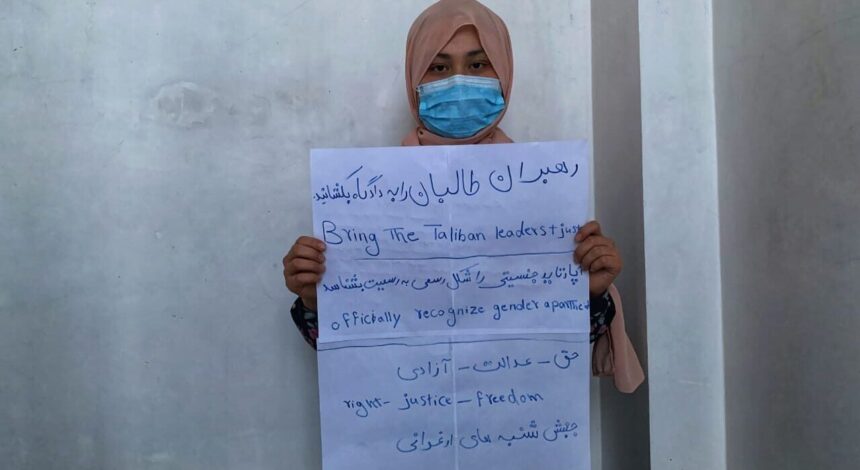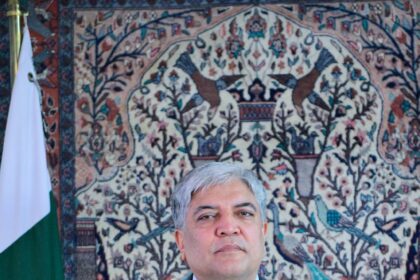RASC News Agency: The Afghanistani Women’s Movement for Transformation has urged the international community to take decisive and tangible action to put an end to the ongoing human rights violations in Afghanistan. Led by women’s rights advocate Raqia Saie, the movement emphasized in a formal statement that global efforts must be intensified to address the systemic abuse of human rights in Afghanistan.
The movement highlighted international recognition of the “gender apartheid” imposed by the Taliban and endorsed efforts to refer the Taliban to the International Criminal Court. It stated that the Taliban’s widespread and institutionalized violation of women’s rights has become one of the most glaring examples of global neglect toward fundamental human rights. According to the movement, Afghanistani women have been confined to their homes and systematically stripped of their rights since the Taliban’s resurgence. The continuous violation of their fundamental freedoms has rendered them prisoners in their own homeland, deprived of education, employment, and basic dignity.
Earlier, Germany, the Netherlands, Australia, and Canada released a joint statement declaring their intent to file a complaint against the Taliban at the International Court of Justice for breaching the “Convention on the Elimination of All Forms of Discrimination Against Women.” To date, over 26 nations and organizations, including UN Secretary-General Antonio Guterres, have voiced their support for this initiative. In its statement, the Afghanistani Women’s Movement for Transformation endorsed the campaign, describing it as a “positive and necessary” step toward ensuring justice for Afghanistani women.
The movement further stressed, “The time has come for the global community to demonstrate its commitment to human rights by taking concrete and effective measures. It must show that it will not allow the continuous violation of women’s rights and the degradation of their dignity to persist.” The statement warned that failing to address these blatant violations would be tantamount to passive complicity. Historically, it emphasized, those who remained silent in the face of such injustice have borne the heavy burden of responsibility for allowing oppression to continue unchallenged.
The movement called on all governments and international organizations to take decisive action and hold the Taliban accountable for their “heinous crimes against women and humanity.” It further described the situation for women in Afghanistan under Taliban rule as dire, stating that they are enduring unimaginable hardships. Since seizing power, the Taliban have forced women into seclusion, closed schools and universities to them, and barred them from participating in the workforce, creating an environment where their basic rights are consistently denied.






